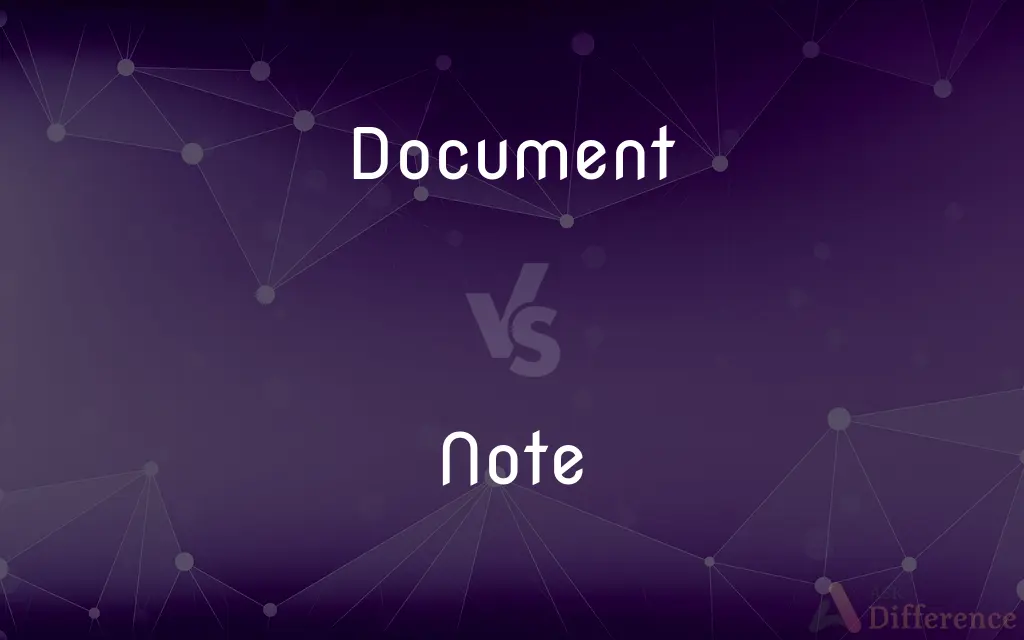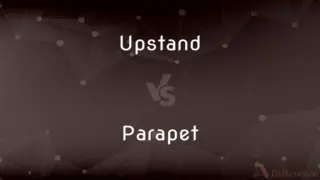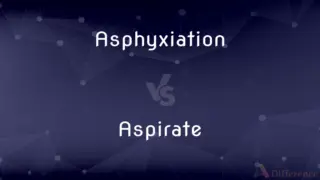Document vs. Note — What's the Difference?
Edited by Tayyaba Rehman — By Fiza Rafique — Updated on May 6, 2024
Document refers to an official paper containing important information, often used for legal, historical, or administrative purposes, whereas a note is typically a brief, informal record or reminder used for personal or less formal needs.

Difference Between Document and Note
Table of Contents
ADVERTISEMENT
Key Differences
A document is generally formal and structured, intended for official use, such as contracts, letters, or government records. Whereas a note is more informal, often used for quick personal reminders, brief annotations, or informal communications.
Documents are usually created with a specific format in mind, ensuring they meet legal, academic, or professional standards. On the other hand, notes can be scribbled quickly and might not follow any particular format, focusing instead on brevity and immediacy.
In terms of permanence and significance, documents are often archived and maintained for long-term reference, while notes might be temporary, discarded once their immediate purpose is fulfilled.
Documents can be binding and carry legal weight, such as agreements or certificates, whereas notes are usually non-binding and more for personal reference.
While documents often require certain protocols for modification and distribution, such as approvals or official amendments, notes are more flexible, easily altered or shared informally.
ADVERTISEMENT
Comparison Chart
Formality
Formal, adheres to standards
Informal, lacks specific standards
Purpose
Official use (e.g., legal, administrative)
Personal reminders, informal use
Format
Structured and consistent
Unstructured, often handwritten
Permanence
Designed for long-term reference
Typically temporary or short-term
Legal Weight
Often legally binding
Usually non-binding
Compare with Definitions
Document
A written item that provides information or evidence.
The company keeps all employee contracts as official documents.
Note
Annotations or comments written in a book or document.
The student added notes in the margins of his textbook.
Document
Legal papers that verify identity or status.
She presented her passport as a travel document at the airport.
Note
Informal written correspondence.
I received a thank you note from her after the party.
Document
Any printable material that is part of business records.
Documents were filed for the audit yesterday.
Note
A brief written reminder.
She left a note on the fridge about the grocery list.
Document
Records that can be electronically stored and retrieved.
He saved the project proposal as a PDF document.
Note
A short piece of writing conveying information in a compact form.
His notebook was filled with notes from the lecture.
Document
Texts that preserve historical facts.
Original documents from the Civil War are preserved in the museum.
Note
A record of a short verbal communication.
He took notes during the meeting to remember the key points.
Document
A document is a written, drawn, presented, or memorialized representation of thought, often the manifestation of non-fictional, as well as fictional, content. The word originates from the Latin Documentum, which denotes a "teaching" or "lesson": the verb doceō denotes "to teach".
Note
A brief record, especially one written down to aid the memory
Took notes on the lecture.
Document
A piece of written, printed, or electronic matter that provides information or evidence or that serves as an official record.
Note
A comment or explanation, as on a passage in a text
The allusion is explained in the notes at the end of the chapter.
Document
Record (something) in written, photographic, or other form
The photographer spent years documenting the lives of miners
Note
A brief informal letter
Sent a note to the child's teacher.
Document
A written or printed paper that bears the original, official, or legal form of something and can be used to furnish decisive evidence or information.
Note
A formal written diplomatic or official communication.
Document
Something, such as a recording or a photograph, that can be used to furnish evidence or information.
Note
A piece of paper currency.
Document
A writing that contains information.
Note
A debt security, usually with a maturity of ten years or less.
Document
(Computers) A piece of work created with an application, as with a word processor.
Note
A promissory note.
Document
(Computers) A computer file that is not an executable file and contains data for use by applications.
Note
A tone of definite pitch.
Document
Something, especially a material substance such as a coin bearing a revealing symbol or mark, that serves as proof or evidence.
Note
A symbol for such a tone, indicating pitch by its position on the staff and duration by its shape.
Document
To furnish with a document or documents.
Note
A key of an instrument, such as a piano.
Document
To methodically record the details of
"I had thought long and logically about ... how to document the patterns of dolphin behavior" (Diana Reiss).
Note
The characteristic vocal sound made by a songbird or other animal
The clear note of a cardinal.
Document
To support (an assertion or claim, for example) with evidence or decisive information.
Note
The sign of a particular quality or emotion
A note of despair in his remarks.
A note of gaiety in her manner.
Document
To support (statements in a book, for example) with written references or citations; annotate.
Note
A distinctive component of a complex flavor or aroma
A full-bodied wine with notes of cherry and musk.
Document
An original or official paper used as the basis, proof, or support of anything else, including any writing, book, or other instrument conveying information pertinent to such proof or support.
Note
Importance; consequence
Nothing of note happened.
Document
Any material substance on which the information is represented by writing.
Note
Notice; observation
Quietly took note of the scene.
Document
(computing) A file that contains text.
Note
(Obsolete) A song, melody, or tune.
Document
(obsolete) That which is taught or authoritatively set forth; precept; instruction; dogma.
Note
To observe carefully; notice
Note the difference between these two plants. ].
Document
(obsolete) An example for instruction or warning.
Note
A symbol or annotation.
Document
To record in documents.
He documented each step of the process as he did it, which was good when the investigation occurred.
Note
A mark or token by which a thing may be known; a visible sign; a character; a distinctive mark or feature; a characteristic quality.
Document
To furnish with documents or papers necessary to establish facts or give information.
A ship should be documented according to the directions of law.
Note
A mark, or sign, made to call attention, to point out something to notice, or the like; a sign, or token, proving or giving evidence.
Document
That which is taught or authoritatively set forth; precept; instruction; dogma.
Learners should not be too much crowded with a heap or multitude of documents or ideas at one time.
Note
A brief remark; a marginal comment or explanation; hence, an annotation on a text or author; a comment; a critical, explanatory, or illustrative observation.
Document
An example for instruction or warning.
They were forth with stoned to death, as a document to others.
Note
A written or printed communication or commitment.
Document
An original or official paper relied upon as the basis, proof, or support of anything else; - in its most extended sense, including any writing, book, or other instrument conveying information in the case; any material substance on which the thoughts of men are represented by any species of conventional mark or symbol.
Saint Luke . . . collected them from such documents and testimonies as he . . . judged to be authentic.
Note
A brief piece of writing intended to assist the memory; a memorandum; a minute.
I left him a note to remind him to take out the trash.
Document
To teach; to school.
I am finely documented by my own daughter.
Note
A short informal letter; a billet.
Document
To furnish with documents or papers necessary to establish facts or give information; as, a a ship should be documented according to the directions of law.
Note
(academic) An academic treatise (often without regard to length); a treatment; a discussion paper; (loosely) any contribution to an academic discourse.
Document
Writing that provides information (especially information of an official nature)
Note
A diplomatic missive or written communication.
Document
Anything serving as a representation of a person's thinking by means of symbolic marks
Note
(finance) A written or printed paper acknowledging a debt, and promising payment
A promissory note
A note of hand
A negotiable note
Document
A written account of ownership or obligation
Note
(obsolete) A list of items or of charges; an account.
Document
(computer science) a computer file that contains text (and possibly formatting instructions) using 7-bit ASCII characters
Note
A piece of paper money; a banknote.
I didn't have any coins to pay with, so I used a note.
Document
Record in detail;
The parents documented every step of their child's development
Note
(extension) A small size of paper used for writing letters or notes.
Document
Support or supply with references;
Can you document your claims?
Note
(music) A sound.
Note
A character, variously formed, to indicate the length of a tone, and variously placed upon the staff to indicate its pitch.
Note
A musical sound; a tone; an utterance; a tune.
Note
(by extension) A key of the piano or organ.
Note
(by extension) A call or song of a bird.
Note
(uncountable) Observation; notice; heed.
Note
(uncountable) Reputation; distinction.
A poet of note
Note
A critical comment.
Your performance was fantastic! I have just one note: you were a little flat in bars 35 and 36.
Note
(obsolete) Notification; information; intelligence.
Note
(obsolete) Mark of disgrace.
Note
That which is needed or necessary; business; duty; work.
Note
The giving of milk by a cow or sow; the period following calving or farrowing during which a cow or sow is at her most useful (i.e. gives milk); the milk given by a cow or sow during such a period.
Note
(transitive) To notice with care; to observe; to remark; to heed.
If you look to the left, you can note the old cathedral.
Note
(transitive) To record in writing; to make a memorandum of.
We noted his speech.
Note
(transitive) To denote; to designate.
The modular multiplicative inverse of x may be noted x-1.
Note
(transitive) To annotate.
Note
(transitive) To set down in musical characters.
Note
To record on the back of (a bill, draft, etc.) a refusal of acceptance, as the ground of a protest, which is done officially by a notary.
Note
To butt; to push with the horns.
Note
To notice with care; to observe; to remark; to heed; to attend to.
No more of that; I have noted it well.
The world will little note, nor long remember, what we say here, but it can never forget what they did here.
Note
To record in writing; to make a memorandum of.
Every unguarded word . . . was noted down.
Note
To charge, as with crime (with of or for before the thing charged); to brand.
They were both noted of incontinency.
Note
To denote; to designate.
Note
To annotate.
Note
To set down in musical characters.
Note
Know not; knows not.
Note
Nut.
Note
Need; needful business.
Note
A mark or token by which a thing may be known; a visible sign; a character; a distinctive mark or feature; a characteristic quality.
Whosoever appertain to the visible body of the church, they have also the notes of external profession.
She [the Anglican church] has the note of possession, the note of freedom from party titles,the note of life - a tough life and a vigorous.
What a note of youth, of imagination, of impulsive eagerness, there was through it all !
Note
A mark, or sign, made to call attention, to point out something to notice, or the like; a sign, or token, proving or giving evidence.
Note
A brief remark; a marginal comment or explanation; hence, an annotation on a text or author; a comment; a critical, explanatory, or illustrative observation.
The best writers have been perplexed with notes, and obscured with illustrations.
Note
A brief writing intended to assist the memory; a memorandum; a minute.
Note
Hence, a writing intended to be used in speaking; memoranda to assist a speaker, being either a synopsis, or the full text of what is to be said; as, to preach from notes; also, a reporter's memoranda; the original report of a speech or of proceedings.
Note
A short informal letter; a billet.
Note
A diplomatic missive or written communication.
Note
A written or printed paper acknowledging a debt, and promising payment; as, a promissory note; a note of hand; a negotiable note.
Note
A list of items or of charges; an account.
Here is now the smith's note for shoeing.
Note
A character, variously formed, to indicate the length of a tone, and variously placed upon the staff to indicate its pitch. Hence:
The wakeful bird . . . tunes her nocturnal note.
That note of revolt against the eighteenth century, which we detect in Goethe, was struck by Winckelmann.
Note
Observation; notice; heed.
Give orders to my servants that they takeNo note at all of our being absent hence.
Note
Notification; information; intelligence.
The king . . . shall have note of this.
Note
State of being under observation.
Small matters . . . continually in use and in note.
Note
Reputation; distinction; as, a poet of note.
There was scarce a family of note which had not poured out its blood on the field or the scaffold.
Note
Stigma; brand; reproach.
Note
A short personal letter;
Drop me a line when you get there
Note
A brief written record;
He made a note of the appointment
Note
A characteristic emotional quality;
It ended on a sour note
There was a note of gaiety in her manner
He detected a note of sarcasm
Note
A piece of paper money (especially one issued by a central bank);
He peeled off five one-thousand-zloty notes
Note
A notation representing the pitch and duration of a musical sound;
The singer held the note too long
Note
A comment or instruction (usually added);
His notes were appended at the end of the article
He added a short notation to the address on the envelope
Note
High status importance owing to marked superiority;
A scholar of great eminence
Note
A tone of voice that shows what the speaker is feeling;
There was a note of uncertainty in his voice
Note
A promise to pay a specified amount on demand or at a certain time;
I had to co-sign his note at the bank
Note
Make mention of;
She observed that his presentation took up too much time
They noted that it was a fine day to go sailing
Note
Notice or perceive;
She noted that someone was following her
Mark my words
Note
Observe with care or pay close attention to;
Take note of this chemical reaction
Note
Make a written note of;
She noted everything the teacher said that morning
Common Curiosities
What is a document?
A document is a formal piece of writing that serves as an official record or provides evidence or information.
How are documents usually preserved?
Documents are typically archived or stored in both physical and digital formats for long-term usage and reference.
Can notes be considered legal documents?
Generally, notes are not considered legal documents as they are informal and lack the formal structure required for legal validity.
What is a note?
A note is a brief written reminder or a short informal document used for personal information.
How do organizations use documents?
Organizations use documents for maintaining records, legal compliance, communication, and ensuring operational continuity.
What are common types of documents?
Common types of documents include contracts, certificates, reports, and letters.
Are there electronic versions of notes?
Yes, notes can also be electronic, like digital notepads or apps designed for quick and informal writing.
Can a note be upgraded to a document?
While a note itself is informal, it can form the basis for a more formal document if further developed and structured.
How important is formatting in a document?
Formatting is crucial in documents as it ensures clarity, consistency, and compliance with standards required in formal and official communications.
What tools are used to create documents?
Tools such as word processors, document management systems, and specialized legal and business software are commonly used.
Is there a legal binding power to notes?
No, notes generally do not have legal binding power unless they are part of a larger, formal document like a contract.
What tools are used for taking notes?
Simple tools like notepads, sticky notes, or digital apps like Evernote and OneNote are popular for taking notes.
Share Your Discovery

Previous Comparison
Upstand vs. Parapet
Next Comparison
Asphyxiation vs. AspirateAuthor Spotlight
Written by
Fiza RafiqueFiza Rafique is a skilled content writer at AskDifference.com, where she meticulously refines and enhances written pieces. Drawing from her vast editorial expertise, Fiza ensures clarity, accuracy, and precision in every article. Passionate about language, she continually seeks to elevate the quality of content for readers worldwide.
Edited by
Tayyaba RehmanTayyaba Rehman is a distinguished writer, currently serving as a primary contributor to askdifference.com. As a researcher in semantics and etymology, Tayyaba's passion for the complexity of languages and their distinctions has found a perfect home on the platform. Tayyaba delves into the intricacies of language, distinguishing between commonly confused words and phrases, thereby providing clarity for readers worldwide.














































